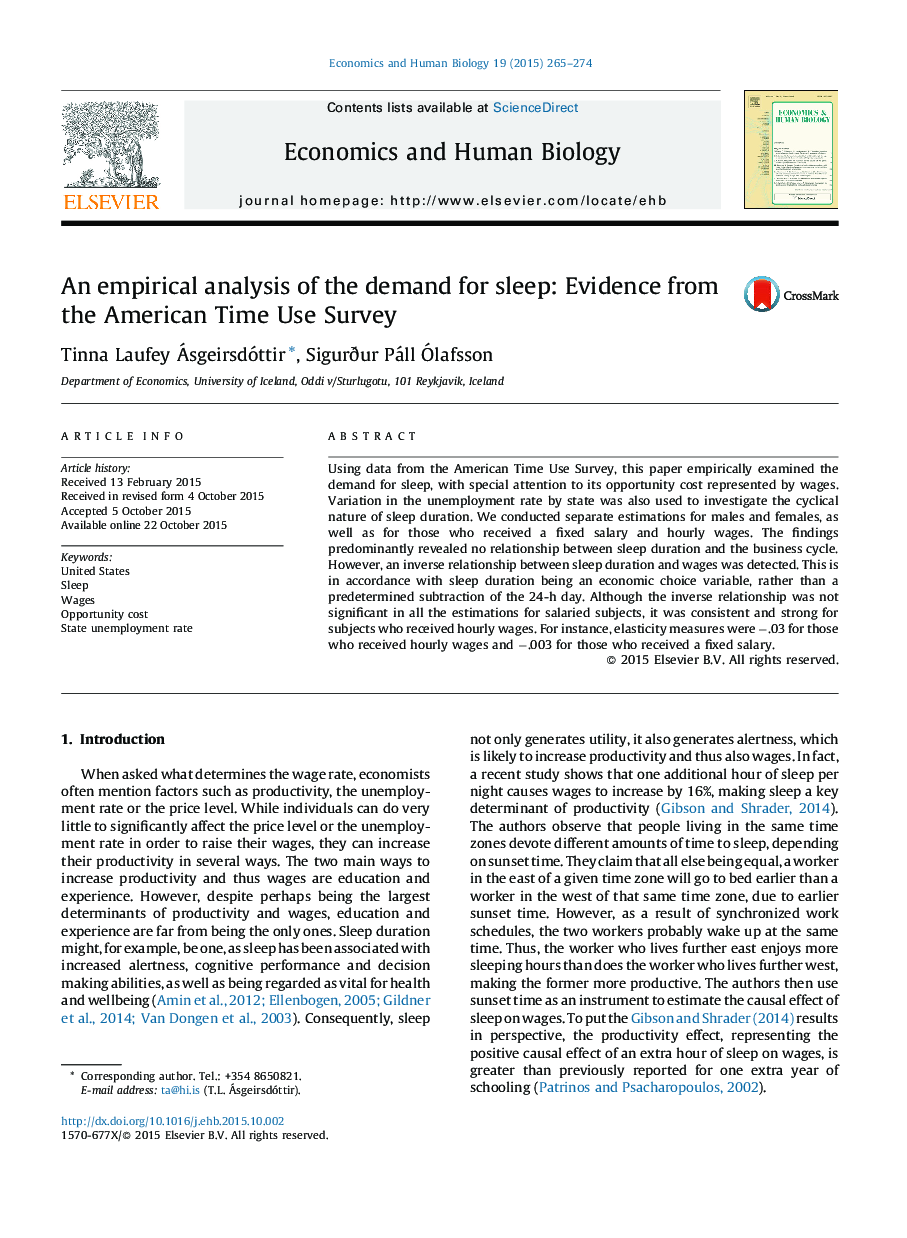| Article ID | Journal | Published Year | Pages | File Type |
|---|---|---|---|---|
| 5056946 | Economics & Human Biology | 2015 | 10 Pages |
â¢We examine the demand for sleep as a function of wages.â¢We find an inverse relationship between sleep duration and wages.â¢A 1% wage increase is associated with a 9 s reduction in sleep duration.â¢We do not observe a consistent relationship between sleep and the unemployment rate.
Using data from the American Time Use Survey, this paper empirically examined the demand for sleep, with special attention to its opportunity cost represented by wages. Variation in the unemployment rate by state was also used to investigate the cyclical nature of sleep duration. We conducted separate estimations for males and females, as well as for those who received a fixed salary and hourly wages. The findings predominantly revealed no relationship between sleep duration and the business cycle. However, an inverse relationship between sleep duration and wages was detected. This is in accordance with sleep duration being an economic choice variable, rather than a predetermined subtraction of the 24-h day. Although the inverse relationship was not significant in all the estimations for salaried subjects, it was consistent and strong for subjects who received hourly wages. For instance, elasticity measures were â.03 for those who received hourly wages and â.003 for those who received a fixed salary.
